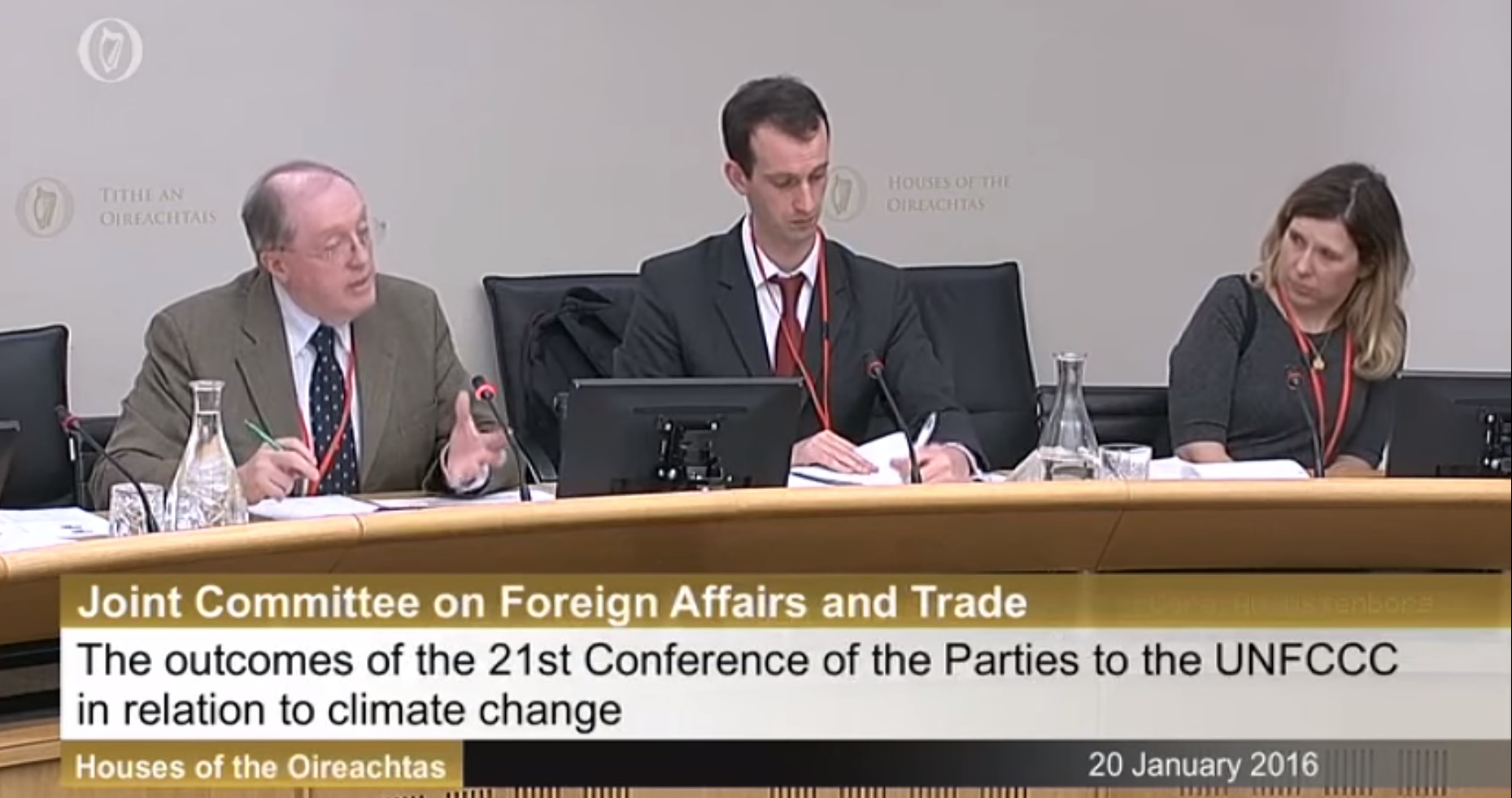The success of the student divestment movement in Ireland

July 6th, 2017
With the Fossil Fuel Divestment Bill subject to pre-legislative scrutiny in the Dáil last week, Lia Flattery looks back at the success of the student divestment movement in Ireland and the role it played in making divestment a national issue.
In recent years, there has been growing pressure for universities and businesses worldwide to divest from the fossil fuel industry.
In particular, the international Fossil Free divestment movement has been particularly dynamic within third-level institutions.
Successful campaigns have been run by students across the globe, including the University of Oxford, the University of Glasgow, Boston University, the Australian National University, and much more.
In December 2016, Trinity College Dublin (TCD) became the first university in Ireland to officially commit to divestment. NUI Galway and Queen’s University Belfast soon followed suit.
Jessie Dolliver studies science at Trinity and was a leading member of TCD Fossil Free, a group of students who successfully convinced the university to divest its €6.1 million in fossils fuel investments after a 15-month campaign.
The group presented the university’s finance committee with a report outlining why divestment would be beneficial for the university, and also circulated an open letter calling for divestment.
Dolliver spoke to The Green News about the success of the movement and the future of student environmental activism in Ireland.
Reflecting on the huge popularity of the divestment movement among students, Dolliver said that the appeal lies in the opportunity to make “tangible” change that the movement offers.
Often the thought of tackling environmental matters such as climate change can be “overwhelming and intimidating”, she explained and can discourage people from getting involved in campaigning.
She added, however, that looking into divestment was “something very direct and personal” for TCD student environmentalists, providing an opportunity to examine what they could do on their own campus to help further sustainability.
Dolliver thinks that often “distrust” and lack of faith in Ireland’s current political climate can also discourage students from taking “affirmative action” on issues that matter to them.
Once students saw that university management was listening to Fossil Free TCD, support for the campaign grew, including those not typically engaged in environmental activism.
“Because, in the modern political climate, to get a win is so rare, it really inspired a lot of people and gave people a boost that they needed,” Dolliver added.
When Independent TD Thomas Pringle initially put forward the Fossil Free Divestment Bill in 2016, members of Fossil Free TCD “were all a little bit shocked”, she said.
If passed into law, the Bill would make Ireland the first country to ban a state investment vehicle – the Ireland Strategic Investment Fund – from investing in the fossil fuel industry.
“We didn’t think that it [divestment] was going to escalate that quickly or that it was going to happen on that scale,” she added.
The student campaigners had to “mobilise very quickly” to support the bill, largely by working with organisations like Trócaire and Stop Climate Chaos.
Following this success, Dolliver hopes that student environmental activists can see themselves as an important force for change in Ireland.
“If you can capitalise on that one moment at the beginning of someone’s life when they can envision a world that they’d like to live in and they have the energy to try and fight for that world, I think that could be really valuable”, she added.
However, to achieve this she believes that there needs to be greater support and facilitation of student activism in Ireland.
Dolliver and a number of other students have taken some action on this front by establishing the All-Ireland Student Activist Network.
The network is a platform that facilitates communication and collaboration between students interested in environmental and social justice.
For Dolliver and other student environmental activists at Trinity, the next big thing on the agenda will be scrutinising Minister for Communications, Climate Action and Environment Denis Naughten’s National Mitigation Plan on climate change, due to be published at the end of June.
[x_author title=”About the Author”]







